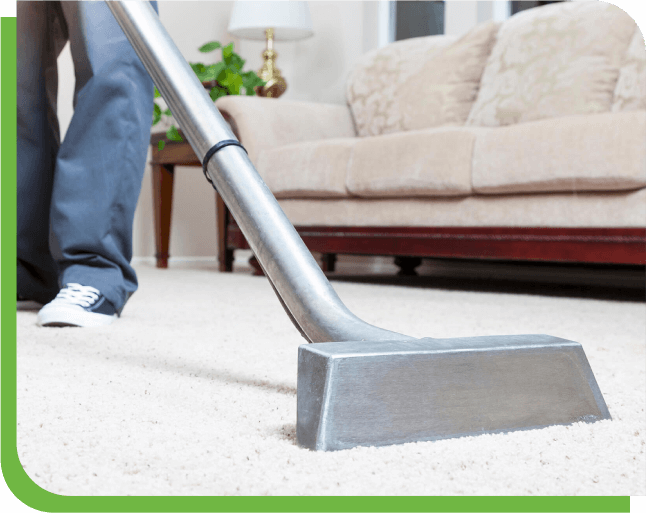
Is Your Carpet Making You Sick? Uncovering Hidden Carpet Cleaning Health Risks
Always check your carpet products for
to avoid exposure to hazardous substances. Keeping carpets spotless feels like a win—until you realize that improper carpet cleaning methods could actually be compromising your health. While it’s essential for removing dirt, bacteria, and allergens, carpet cleaning can also come with unseen dangers. From harsh chemicals to hidden mold, it’s time we dive deep into the potential carpet cleaning health risks that could be lurking beneath your feet.
The Unseen Dangers Beneath the Fibers
You vacuum regularly, maybe even schedule professional cleanings once or twice a year. So your carpets are safe, right? Not necessarily. If done improperly, cleaning your carpet can introduce more health hazards than it eliminates. Poorly ventilated rooms combined with carpet cleaning may trigger
, especially in children.
Chemical Overload: Toxic Cleaners and Their Impact
Overuse of chemical-based products can lead to a buildup of
in your living space. Many store-bought carpet cleaning solutions are loaded with chemicals. These may be effective against stains, but they can leave behind toxic residues and airborne pollutants.
Common chemical culprits include:
- Perchloroethylene: A popular dry-cleaning agent known to cause dizziness and nausea
- Naphthalene: Derived from coal tar, potentially harmful to the nervous system
- Butoxyethanol: A solvent linked to skin and respiratory irritation
Breathing in these substances or coming into contact with residue can cause anything from minor allergic reactions to more severe respiratory distress—especially in kids, pets, and people with asthma.
Mold: The Moist Menace
Improper cleaning techniques, especially steam cleaning without adequate drying time, can leave carpets damp for too long. This moisture becomes a breeding ground for mold and mildew, both of which pose serious carpet cleaning health risks.
Health symptoms associated with mold exposure include:
- Chronic coughing or sneezing
- Eye, nose, and throat irritation
- Skin rashes
- Aggravated asthma or bronchitis
Clean Smarter: Safe Carpet Cleaning Practices
So how can you enjoy fresh, clean carpets without the hidden hazards? It’s all about cleaning smarter—not just harder.
Go Green with Cleaning Solutions
Opt for eco-friendly, non-toxic carpet cleaners that don’t sacrifice safety for stain removal. Many plant-based products are just as effective and contain fewer volatile organic compounds (VOCs).
Let It Breathe: Prioritize Ventilation
Whether you’re DIYing or using professionals, ensure the space is well-ventilated. Open windows, run fans, or use a dehumidifier to speed up the drying process and prevent mold growth.
Choose Certified Professionals
Not all carpet cleaning companies are created equal. Look for services that:
- Use green-certified products
- Offer low-moisture cleaning options
- Are upfront about the chemicals used in their processes
Symptoms You Shouldn’t Ignore
If you or your family experience any of the following symptoms shortly after a carpet cleaning, it might be a sign you’ve been exposed to carpet cleaning health risks:
- Headaches or dizziness
- Shortness of breath
- Unexplained rashes
- Irritated eyes or throat
- Worsening allergies
These signs shouldn’t be dismissed. Prolonged exposure to carpet contaminants can turn a temporary irritation into a chronic condition.
Cleaning Myths That Might Harm Your Health
Some commonly believed carpet cleaning myths may actually do more harm than good. Let’s debunk a few:
Myth 1: More Detergent = Cleaner Carpets
Truth: Excess detergent can attract more dirt and leave behind chemical residues.
Myth 2: Carpets Should Be Soaked for Deep Cleaning
Truth: Over-wetting leads to mold growth, increasing carpet cleaning health risks dramatically.
Myth 3: Vacuuming Alone is Enough
Truth: While vacuuming removes surface dirt, it doesn’t eliminate bacteria, allergens, or chemical buildup.
Safe Carpet Cleaning Checklist
Before your next clean, go through this checklist to reduce potential health risks:
- Use only non-toxic, green-certified products
- Keep the room well-ventilated
- Avoid over-wetting the carpet
- Dry carpets thoroughly within 24 hours
- Test cleaning agents on a small area first
- Avoid using heavily scented products
Quick Reference: Health Impacts of Common Carpet Cleaning Hazards
Here’s a breakdown of some harmful agents and their effects:
Volatile Organic Compounds (VOCs)
Emitted from synthetic cleaners; can lead to respiratory and neurological problems
Mold Spores
Common after over-wetting carpets; may cause allergic reactions and asthma attacks
Residue Build-up
Leftover chemicals can be absorbed through skin or inhaled, especially by children and pets
Dust Mites
Not cleaned properly? These microscopic pests can thrive and worsen allergies
Frequently Asked Questions
Is carpet cleaning safe for babies and pets?
It can be—but only if non-toxic and residue-free products are used. Babies and pets are more vulnerable to the chemicals used in conventional cleaners, making eco-friendly alternatives essential.
How often should I clean my carpets to avoid health risks?
Ideally, vacuum weekly and have carpets professionally cleaned every 6–12 months. If someone in your home suffers from allergies or asthma, consider more frequent cleanings using low-moisture methods.
Can carpet cleaning cause long-term health issues?
If repeated exposure to harmful chemicals or mold occurs, yes. Long-term respiratory issues and skin sensitivities can develop from consistent exposure to carpet cleaning health risks.
What’s the safest way to clean carpets?
Use plant-based or DIY solutions (like baking soda and vinegar), ensure good airflow, and avoid over-wetting. When in doubt, hire a professional that uses eco-certified products.
Final Thoughts: Clean Carpets Shouldn’t Cost You Your Health
Carpet cleaning doesn’t have to come with consequences. Awareness is the first step toward protecting yourself and your family from potential carpet cleaning health risks. Choose safer methods, stay informed, and always prioritize health over haste. That fresh carpet smell shouldn’t be masking a hidden danger—it should be a sign of a truly clean and safe home.